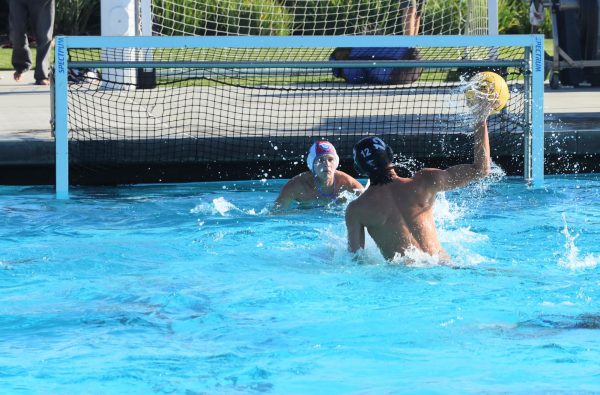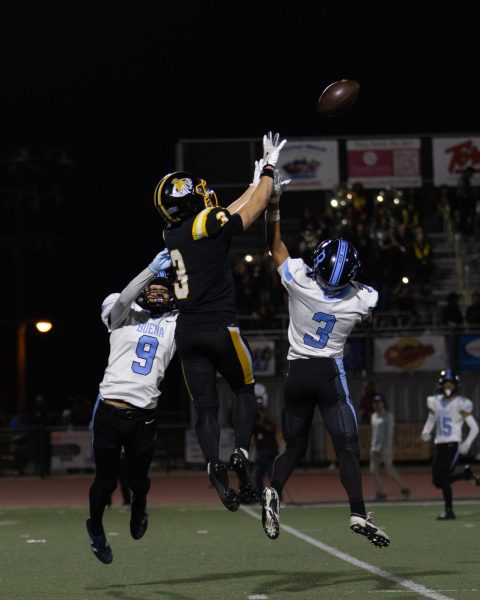Cold-shoulder competition: Kamila Valieva’s Olympic doping scandal and cheating in academics
Kamila Valieva’s doping scandal not only shows how rampant competitive dishonesty is in the Olympics, but also prompts a discussion about cheating in the realm of high-achieving academics.
March 16, 2022
Disgruntled skating fans, questions left unanswered by Olympic organizations, countless videos of ruinous mistakes, tears on the rink and no medal to take home. These are just some of the things fifteen-year-old Kamila Valieva left in her wake after her first Olympic games last month, her fledgling professional career now bearing the controversial mark of a doping scandal. She was the skater to look out for with the skates to slice through her competition, until she wasn’t. Her failed drug test, revealing her use of a banned performance-enhancing heart medication, paints a gruesome analogy for competitive dishonesty and how cheating is so tightly woven into such a competitive culture.
Cheating has, of course, been an age-old attribute in many institutions, especially the academic system. Whether it be inscribing cryptic answers on the palm of one’s hand or collaborating with other students to pass along answers, the ways in which students cheat have evolved to be more elusive, and the environments that allow them to do so influence their morals as well as the student body in general. In a survey of nine Foothill Technology High School (Foothill Tech) students, seven said that expectations exist that pressure students to get the best grades, so much so that they feel the need to cheat.
Valieva, being only fifteen, arrived at the Olympics knowing the high expectations set upon her by endless masses of fans claiming she was destined for gold. She was trained not only to compete against skaters from across the world, but also on her own team. These parameters are comparable to the world of high-stakes academics; students are aware of the high standards set upon them and do whatever they can to perform successfully at such a high level. When asked about what influences contribute to an academic environment where students feel they must cheat, all nine students named a culprit: familial expectations. Six of the nine students also answered that growing concerns for the future and how one’s experience in college and careers would be affected if not academically successful added pressure as well.
This isn’t the first time a Russian athlete has been under fire for a failed drug test. Multiple past Olympians have been found to have used banned substances in sports from ice skating to track and field and weight lifting– thus, a culture exists where cheating can take place within the Russian Olympic community. Such a community also exists in academic institutions that encourage cheating. Almost half of the nine surveyed students don’t cheat on assignments but do not discourage others from doing so.
Considering the grandeur and spectacle of the Olympics, it’s easy to see why such dangerous and controversial activities take place within the Russian team- the pressure to win. Valieva was only one of many young athletes who’ve experienced the damaging fallout of a doping scandal, and there’s no doubt this devastation has sullied her reputation for the foreseeable future.
While Valieva’s controversy has settled, its ripple effects are still felt throughout the skating world- one young athlete with blazing potential for Olympic greatness now questioned about the truth of her involvement in her team and the ethicality of the conduct happening within. Students grapple with the high standards established in their school communities while acknowledging familial expectations as they’ve penned down fraudulent answers to feign academic integrity. Although both situations don’t warrant the same explosive reactions, it’s clear that the systems both are afflicted by similarly intrusive and damaging dynamics.













